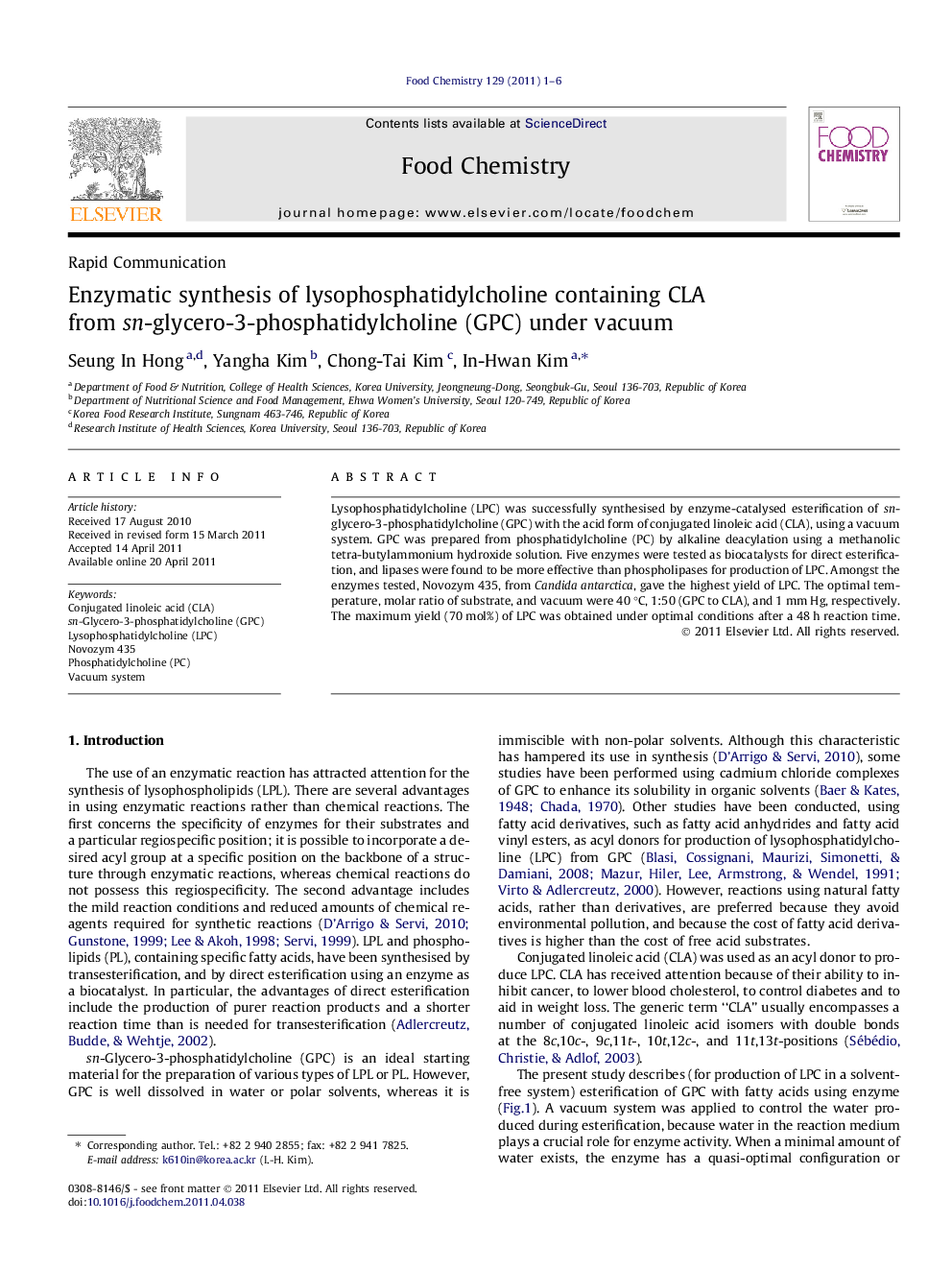| Article ID | Journal | Published Year | Pages | File Type |
|---|---|---|---|---|
| 1188483 | Food Chemistry | 2011 | 6 Pages |
Lysophosphatidylcholine (LPC) was successfully synthesised by enzyme-catalysed esterification of sn-glycero-3-phosphatidylcholine (GPC) with the acid form of conjugated linoleic acid (CLA), using a vacuum system. GPC was prepared from phosphatidylcholine (PC) by alkaline deacylation using a methanolic tetra-butylammonium hydroxide solution. Five enzymes were tested as biocatalysts for direct esterification, and lipases were found to be more effective than phospholipases for production of LPC. Amongst the enzymes tested, Novozym 435, from Candida antarctica, gave the highest yield of LPC. The optimal temperature, molar ratio of substrate, and vacuum were 40 °C, 1:50 (GPC to CLA), and 1 mm Hg, respectively. The maximum yield (70 mol%) of LPC was obtained under optimal conditions after a 48 h reaction time.
► Lipases were more effective than phospholipases for direct esterification of GPC and CLA. ► A vacuum system is an effective method for the production of LPC using enzyme. ► This individual enzyme had the selectivity depending on the configuration of CLA isomers. ► Optimal conditions were a temperature of 40 °C, a molar ratio of 1:50 (GPC to CLA), and a vacuum of 1 mm Hg for 48 h.
